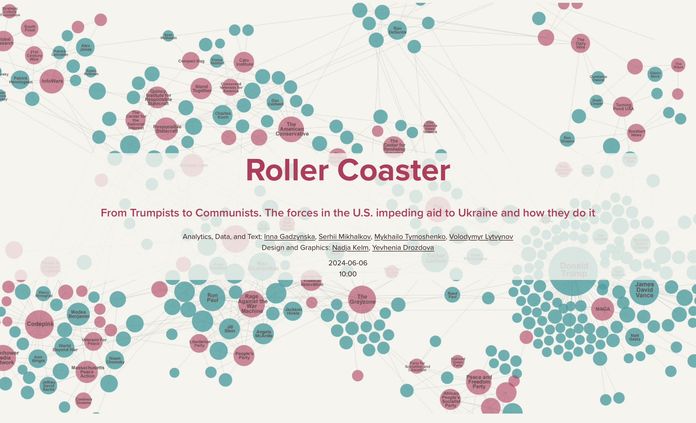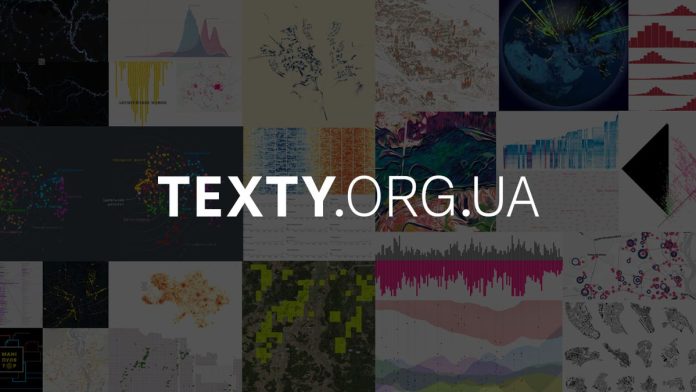© ROOT-NATION.com - Use of content is permitted with a backlink.
Journalists at Texty reported facing unprecedented pressure, slander, demands to cut their funding, and threats of physical violence following the publication of their in-depth article titled “Roller Coaster: The Forces in the U.S. Impending Aid to Ukraine and how they do it.”

This journalistic study provides an analysis of the political, media, and expert landscape in the United States that influences decision-making regarding support for Ukraine. It includes a list of organizations and individuals in the U.S. who oppose aid to Ukraine, along with an analysis of their arguments. These arguments are compared with the narratives typically spread by Russian propaganda. Additionally, the journalists investigated how these organizations and individuals interact with each other and, in some cases, with Russian media and state institutions. The material also features links to open and official sources.
Some of the most common arguments against the US aid to Ukraine echo Russian propaganda.
We have identified these misleading narratives and explained why they are inaccurate and what is wrong with them. https://t.co/4JNzZdysoi
— TEXTY.org.ua in Eng (@Textyorgua_Eng) June 13, 2024
“We do not label the subjects of this study as enemies of Ukraine, nor do we challenge or condemn their right to freedom of expression,” Texty stated. “We merely point out that they oppose support for Ukraine and that many of their arguments align with Russian propaganda narratives regarding Ukraine.”
The article sparked a public outcry and hysteria among those mentioned or associated with it. Congresswoman Marjorie Taylor Greene, who opposed the aid and filed numerous amendments to the bill, referred to the article as an “enemies list.” Daniel McAdams, Director of the Ron Paul Institute, claimed that Texty.org.ua is funded by the American government and is creating a hate list of American citizens. Other senators, congressmen, and even Elon Musk joined the wave of backlash, leading to a surge of insulting comments towards the publication on Twitter.
Oh boy. @TextyOrgUa, a Ukrainian news outlet that primarily works on data and osint-based investigations, published a project looking at Russia-aligned narratives in the US https://t.co/77cICqBmL6
Now, they're being threatened online and called a "terrorist organization" by Musk pic.twitter.com/wgQzBHXY0D
— Jane Lytvynenko (@JaneLytv) June 13, 2024
Mediarukh (an informal association of Ukrainian media, journalists and civil society organizations that advocates for adherence to journalistic standards in the media) condemned the threats, manipulations, and pressure exerted on Texty publication, stating that this “attack on independent media undermines the fundamental principles of a democratic society. If someone disagrees with journalistic content, they should express their opinion, refute, or deny it. However, they should not threaten journalists with violence, call for their inclusion in terrorist lists, or apply financial pressure to silence them.”
Ukraine Parliament Speech Freedom Committee categorically condemns the pressure on https://t.co/topvqPn5Rw.
“We condemn any threats against Ukrainian media. We find it unacceptable for officials & experts, regardless of their political beliefs, to exert pressure.” – @yarlyur
— TEXTY.org.ua in Eng (@Textyorgua_Eng) June 14, 2024
To RFE/RL’s request, the US Embassy in Ukraine responded that “the State Department had no role or participation in the project published by Texty.org.ua.”
Read also:
U.S. House of Representatives Passes Bill to Aid Ukraine


